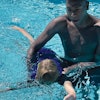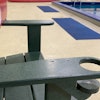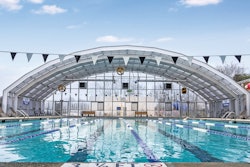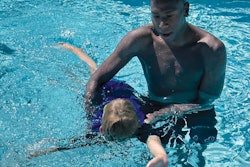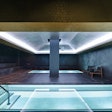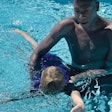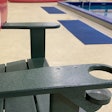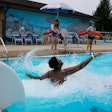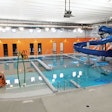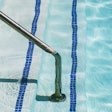Copyright 2018 News & Record (Greensboro, North Carolina)
All Rights Reserved
News & Record (Greensboro, North Carolina)
CHARLOTTE - The U.S. National Whitewater Center is denying allegations that it is responsible for the death of a teenager who contracted a brain-eating amoeba after rafting at the park.
According to federal court documents filed last week, the Whitewater Center rejected claims from a lawsuit accusing the park of "conscious disregard for the safety of visitors."
Lauren Seitz, 18, died of a rare brain infection caused by a single-celled animal, the amoeba Naegleria fowleri, days after visiting the center on June 8, 2016, with a church group. She was in a raft that overturned. The amoeba can infect a person when water goes up the nose. Infections are rare, but they are almost always fatal.
Seitz's father, James Seitz of Ohio, filed the lawsuit last year. He alleges that filthy waters in the park's popular rafting channels posed a danger and increased the likely that amoeba could strike visitors.
When Lauren Seitz's death occurred, the center was one of only three similar facilities in the U.S. that wasn't regulated to protect the public from waterborne diseases.
A park employee later wrote to a county commissioner to complain that the water quality had grown so poor that raft guides routinely suffered from staph infections, ringworm and other skin illnesses. Dead animals and trash were commonly found floating on the water's surface, the employee said.
In its filing, the Whitewater Center denied the most serious allegations in the Seitz lawsuit.
Park officials previously have defended themselves by saying that the amoeba is common in warm freshwater lakes and other bodies of water during the summer, particularly in the southern U.S.
The Whitewater Center draws more than 800,000 visits a year and has total revenue exceeding $18 million annually. The 1,100-acre nonprofit facility in northwest Mecklenburg operates on county property that it rents for $1 a year.
Under scrutiny after Seitz's death, the park closed the water feature for nearly two months and a federal epidemiologist found that filtration and disinfection systems were inadequate to properly clean the facility's turbid waters.
Water samples from the park detected the presence of an amoeba at levels the Centers for Disease Control and Prevention had not previously seen.
In response, the park changed its filtration and disinfection system.
Mecklenburg County commissioners also began requiring an annual operating permit from the county health department that can be suspended if the center doesn't meet water-quality or safety standards.
Read More of Today's AB Headlines
Subscribe to Our Daily E-Newsletter
Terms and Conditions Privacy Policy










